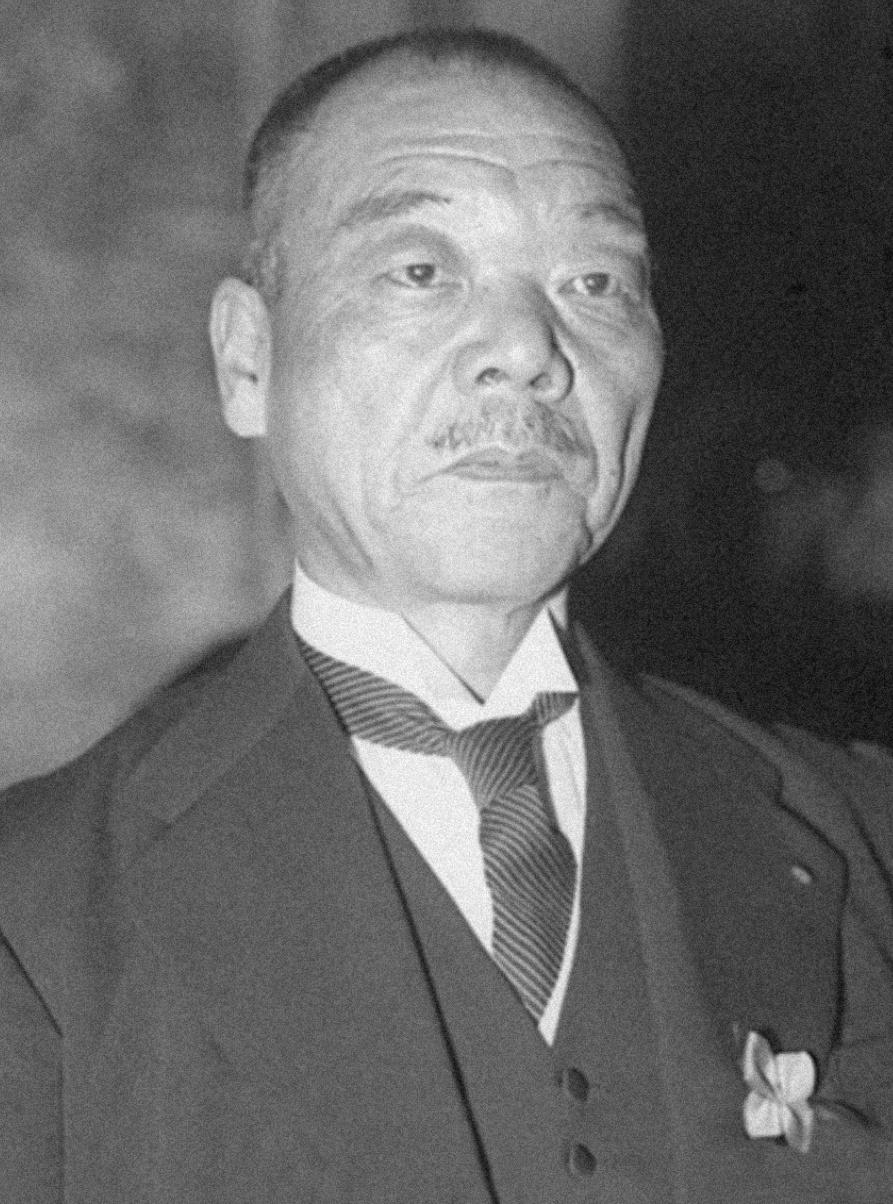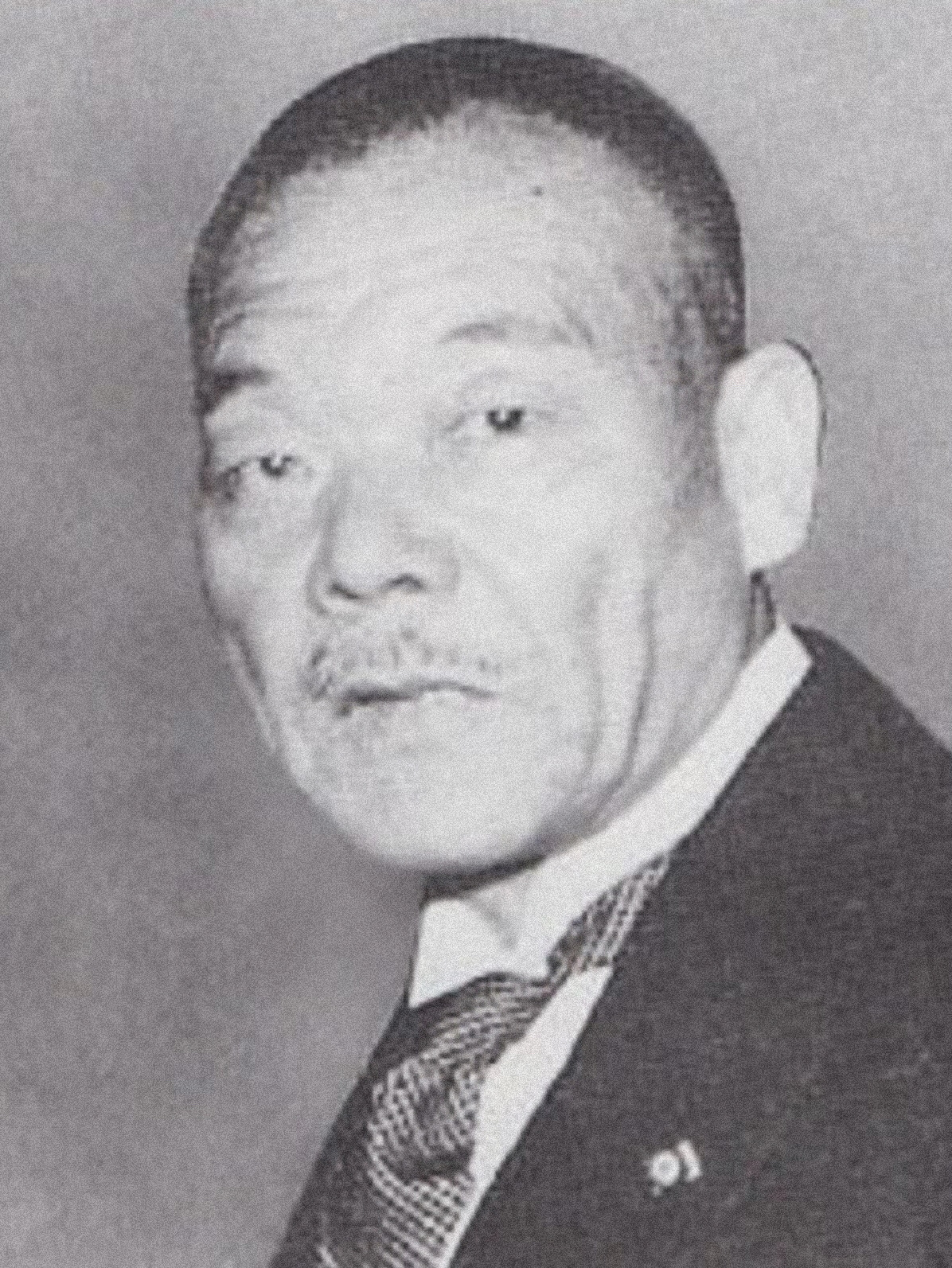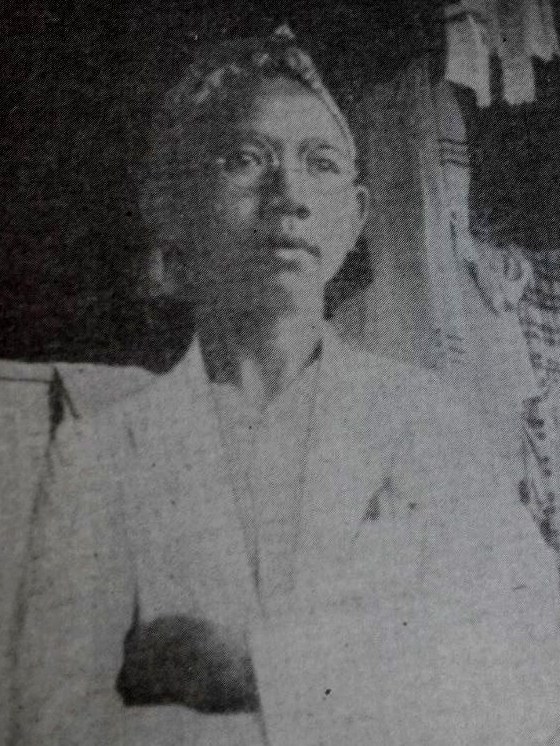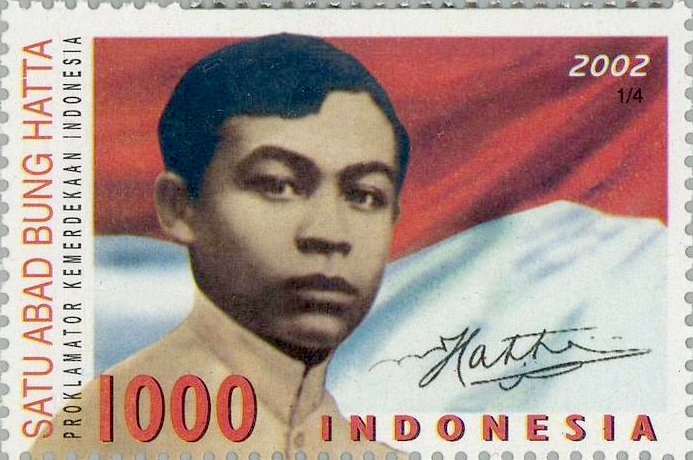|
Jakarta Charter
The Jakarta Charter ( id, Piagam Jakarta) was a document drawn up by members of the Indonesian Investigating Committee for Preparatory Work for Independence (BPUPK) on 22 June 1945 in Jakarta that later formed the basis of the preamble to the Constitution of Indonesia. The document contained the five principles of the Pancasila ideology, but it also included an obligation for Muslims to abide by Shariah law. This obligation, which was also known as the "Seven Words" (''tujuh kata''), was eventually deleted from the enacted constitution after the Indonesian declaration of independence on 18 August 1945. Following the deletion of the "Seven Words" efforts by Islamic parties continued to seek its inclusion, most notably in 1959, when the 1945 constitution was suspended; in 1968, during the Transition to the New Order; and in 2002, following the end of the New Order and the beginning of the ''Reformasi'' era. Background Founding of the BPUPK Prime Minister of Japan, Kuniaki ... [...More Info...] [...Related Items...] OR: [Wikipedia] [Google] [Baidu] |
Indonesian Spelling System
The Enhanced Spelling of the Indonesian Language ( id, Ejaan Bahasa Indonesia yang Disempurnakan, EYD) is the spelling system used for the Indonesian language. History The Enhanced Spelling of the Indonesian Language ( id, Ejaan Bahasa Indonesia yang Disempurnakan, EYD) is the spelling system used for the Indonesian language. The system is an orthography released in 1972 to replace the Republican Spelling System (''RSS'', also called the Soewandi Spelling System, ''SSS''). A joint initiative of Indonesia and neighboring country Malaysia (which also introduced the similar Joint Rumi Spelling system), the aim of the change in 1972 was to introduce greater harmonization of the Indonesian and Malay-language orthographies. The adoption of the new EYD system, to begin on the 27th anniversary of Indonesia's independence on 17 August 1972, was decreed by President Suharto on the previous day. Government departments were instructed to begin using the EYD system on 1 January 1973. On ... [...More Info...] [...Related Items...] OR: [Wikipedia] [Google] [Baidu] |
Kuniaki Koiso
was a Japanese general in the Imperial Japanese Army, Governor-General of Korea and Prime Minister of Japan from 1944 to 1945. After Japan's defeat in World War II, he was convicted of war crimes and sentenced to life imprisonment. Early life Koiso was born on March 22, 1880, in Utsunomiya, Tochigi Prefecture, the first son of chief inspector of police and '' shizoku'' (former samurai) Koiso Susumu. He attended eight different schools, graduating from Yamagata Middle School (today Yamagata Prefectural Yamagata East High School). He was accepted as an officer candidate in 1898. Military career Koiso graduated from the Imperial Japanese Army Academy in 1900 and went on to attend the Army Staff College. Commissioned a 2nd Lieutenant in the 30th Infantry Regiment in June 1901, he was promoted to Lieutenant in November 1903. During the Russo-Japanese War, he served as Battalion Adjutant in September 1904, Company Commander in March 1905 and was promoted to captain in June 1905. ... [...More Info...] [...Related Items...] OR: [Wikipedia] [Google] [Baidu] |
Wahid Hasjim
Abdul Wahid Hasyim (June 1, 1914 – April 19, 1953) was the first Minister of Religious Affairs in the government of President Sukarno of Indonesia, a post he held in 1945, and from 1949 to 1952. He was the son of Nahdlatul Ulama founder Hasyim Asy'ari and went on to lead the organization. In the future his son, Abdurrahman Wahid, also held the same office in NU, and later was elected as President of Indonesia in 1999. One of the main roads in central Jakarta, Jalan Wahid Hasyim, is named after him. Early life Hasyim was born in 1914 as a child of Hasyim Asy'ari and one of his wives, Nafiqoh. Both Asy’ari and Nafiqoh hailed from ulema families in East Java. Hasyim is Asy'ari's first-born male and his fifth child. He spent most of his childhood in Jombang, which included attending a pesantren that his father founded, Pesantren Tebuireng. By 1926, he had finished his schooling in Tebuireng and spent two years continuing his education in various East Java pesantren as was t ... [...More Info...] [...Related Items...] OR: [Wikipedia] [Google] [Baidu] |
Agus Salim
''Haji'' Agus Salim (; October 8, 1884 – November 4, 1954) was an Indonesian journalist, diplomat, and statesman. He served as Indonesia's Minister of Foreign Affairs between 1947 and 1949. Early life Agus Salim was born Masjhoedoelhaq Salim on October 8, 1884, in the village of Koto Gadang, a suburb of Fort de Kock. His father, Sutan Mohammad Salim, was a colonial prosecutor and judge whose highest rank was chief judge for the indigenous court in Tanjung Pinang. His birth name, which translates into "defender of truth", was changed into Agus Salim early in his childhood. Salim received his elementary education at ''Europeesche Lagere School''; at that time, it was considered a privilege for a non-European child to attend an all-European school. He continued his studies at the ''Hogere Burgerschool'' in Batavia, and graduated with the highest score in the whole Dutch East Indies. Salim's father had applied (and was granted) for his two sons, Agus and Jacob, to be granted equ ... [...More Info...] [...Related Items...] OR: [Wikipedia] [Google] [Baidu] |
Abdoel Kahar Moezakir
Prof. K.H. Abdel Kahar Moezakir or new spelling Abdul Kahar Muzakir (16 April 1907 – 2 December 1973), was chosen Rector Magnificus Islamic University of Indonesia for the first time with the name of STI during two periods – 1945–48 and 1948–60 – he was a member of the Investigating Committee for Preparatory Work for Independence (BPUPK). (php). Accessed December 9, 2012. References External links Profile on the official website of |
Abikoesno Tjokrosoejoso
Abikusno Tjokrosujoso (also spelled Abikoesno Tjokrosoejoso, or Abikusno Cokrosuyoso; 1897–1968) was one of the Founding Fathers of Indonesian Independence and a signatory to the constitution. During the Japanese occupation of the Dutch East Indies, Tjokrosoejoso was a key figure in Masjumi, and was a member of the Central Advisory Council.. He later served on the "Committee of Nine” (Panitia Sembilan) that drafted the preamble (known as the Jakarta Charter) to Indonesia's 1945 constitution. After independence, he served as the Minister of Transportation in Sukarno's first Presidential Cabinet, and also became an advisor to the Bureau of Public Works. Tjokrosujono was the younger brother of Oemar Tjokroaminoto, the first leader of Sarekat Islam Sarekat Islam or Syarikat Islam ( 'Islamic Association' or 'Islamic Union'; SI) was an Indonesian socio-political organization founded at the beginning of the 20th Century during the Dutch colonial era. Initially, SI served as a c ... [...More Info...] [...Related Items...] OR: [Wikipedia] [Google] [Baidu] |
Achmad Soebardjo
Achmad Soebardjo Djojoadisoerjo (23 March 1896 – 15 December 1978) was a diplomat, one of Indonesia's founding fathers, and an Indonesian national hero. He was the first Foreign Minister of Indonesia. In 1933, he received the degree '' Meester in de Rechten'' from Leiden University, Netherlands. Early life Achmad Soebardjo was born in Teluk Jambe, Karawang Regency, West Java, on 23 March 1896. His father was Teuku Muhammad Yusuf, an Acehnese patrician from Pidie. His paternal grandfather was an ulama and his father was the chief of police in Teluk Jambe, Karawang. His mother was Wardinah. She was of Javanese- Buginese descent, from ''Camat'' in Telukagung, Cirebon. Initially, his father gave him the name Teuku Abdul Manaf, but his mother gave him the name Achmad Subardjo. Djojoadisoerjo was added by himself after he was arrested and imprisoned in Ponorogo Prison because of his involvement with the "July 3, 1946 Incident". He studied at Hogere Burgerschool Jakarta in 1917. ... [...More Info...] [...Related Items...] OR: [Wikipedia] [Google] [Baidu] |
Mohammad Hatta
Mohammad Hatta (; 12 August 1902 – 14 March 1980) was an Indonesian statesman and nationalist who served as the country's first vice president. Known as "The Proclamator", he and a number of Indonesians, including the first president of Indonesia, Soekarno, fought for the independence of Indonesia from the Dutch. Hatta was born in Fort de Kock, Dutch East Indies (now Bukittinggi, Indonesia). After his early education, he studied in Dutch schools in the Dutch East Indies and studied in the Netherlands from 1921 until 1932. Early life, family, and early education Early life and family Hatta was born in Fort De Kock (now known as Bukittinggi) on 12 August 1902 into a prominent and strongly Islamic family. His grandfather, Sheikh Abdurrahman, was a respected Naqshbandi-Khalidi murshid in Batuhampar, near Payakumbuh. His father, Haji Mohammad Djamil, died when he was eight months old and he was left with his six sisters and his mother. As in the matrilineal society of Minangka ... [...More Info...] [...Related Items...] OR: [Wikipedia] [Google] [Baidu] |
Mohammad Yamin
Mohammad Yamin (24 August 1903 – 17 October 1962) was an Indonesians, Indonesian poet, politician and National Hero of Indonesia, national hero who played a key role in the writing of the draft preamble to the Constitution of Indonesia, 1945 constitution. Early life and education Yamin was born on 28 August 1903 in Talawi, Sawahlunto on the island of Sumatra, Indonesia. He was educated at Dutch schools for natives, firstly at a Hollandsch-Inlandsche School, then at a Algemene Middelbare School in Yogyakarta. In 1932 he obtained a law degree in Jakarta. In the early 1930s, Yamin was active in journalist circles, joining the editorial board of the newspaper ''Panorama'', together with Liem Koen Hian, Sanusi Pane and Amir Sjarifuddin. In mid-1936, together with his colleagues Liem, Pane and Sjarifuddin, Yamin started another newspaper, ''Kebangoenan'' (1936–1941), which—as with ''Panorama''—was published by Phoa Liong Gie's Siang Po Printing Press. Literary legacy Yamin be ... [...More Info...] [...Related Items...] OR: [Wikipedia] [Google] [Baidu] |
Sukarno
Sukarno). (; born Koesno Sosrodihardjo, ; 6 June 1901 – 21 June 1970) was an Indonesian statesman, orator, revolutionary, and nationalist who was the first president of Indonesia, serving from 1945 to 1967. Sukarno was the leader of the Indonesian struggle for independence from the Dutch colonialists. He was a prominent leader of Indonesia's nationalist movement during the colonial period and spent over a decade under Dutch detention until released by the invading Japanese forces in World War II. Sukarno and his fellow nationalists collaborated to garner support for the Japanese war effort from the population, in exchange for Japanese aid in spreading nationalist ideas. Upon Japanese surrender, Sukarno and Mohammad Hatta declared Indonesian independence on 17 August 1945, and Sukarno was appointed president. He led the Indonesian resistance to Dutch re-colonisation efforts via diplomatic and military means until the Dutch recognition of Indonesian independence ... [...More Info...] [...Related Items...] OR: [Wikipedia] [Google] [Baidu] |
Sixteenth Army (Japan)
The was an army of the Imperial Japanese Army during World War II. History The Japanese 16th Army was formed on November 5, 1941 under the Southern Expeditionary Army Group to coordinate the infantry divisions and other Japanese ground forces in the Invasion of Java in the Netherlands East Indies. It remained based on Java throughout the Pacific War as a garrison force. On March 27, 1944, with the threat of possible landings of Allied forces to retake the Dutch East Indies increasing, the organizational structure of the Southern Expeditionary Army changed and the IJA 16th Army was reassigned to the Japanese Seventh Area Army. It remained headquartered in Jakarta as a garrison force as before. The Japanese 16th Army was demobilized at the surrender of Japan The surrender of the Empire of Japan in World War II was announced by Emperor Hirohito on 15 August and formally signed on 2 September 1945, bringing the war's hostilities to a close. By the end of July 1945, ... [...More Info...] [...Related Items...] OR: [Wikipedia] [Google] [Baidu] |





